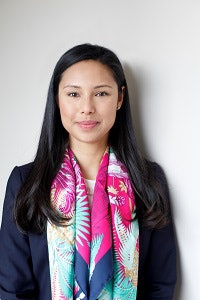As liberal arts colleges work to reposition themselves in the face of enrollment pressures, there has been renewed interest in developing an “applied” approach that helps students see the salience of the humanities, social sciences, and natural sciences to their professional aspirations. The liberal arts can help students prepare for the complexities of the modern workplace, including those related to religious diversity.
Navigating religious difference in our personal and professional lives – in hospitals, social service agencies, schools, and companies – is highly relevant now that the United States is the most religiously diverse nation in the world. Colleges and universities have become more adept – albeit far from perfect, as readers of this publication know well – at attending to and helping students navigate diversity in terms of geography, socioeconomic status, sexual orientation, even race and ethnicity. But there is much more room for improvement in navigating religious difference constructively.
To this end, the Teagle Foundation worked with Interfaith Youth Core (IFYC), a national nonprofit devoted to making interfaith cooperation a social norm, in using an interfaith lens to connect the liberal arts to preparation for careers in business, education, and healthcare. The 16 campus partners that participated in the initiative represent the diversity of American higher education in terms of institutional type, source of funding, and denominational affiliation. Their experiences provide a guide to interdisciplinary collaboration that links the liberal arts to professional preparation.
 Loni Bordoloi Pazich
Loni Bordoloi PazichFocus on transformation rather than addition. The campuses sought to redesign their curriculum to ensure that the newly launched programs were financially sustainable given the prevailing distribution of faculty. For example, Barton College had two siloed sets of programming: curricular offerings that brought interfaith studies into healthcare courses, and co-curricular opportunities for students to engage with religious diversity. Barton launched an 18-credit minor in interfaith studies that leverages both its curricular and co-curricular offerings. Requirements include a co-curricular portfolio component where students practice the competencies and skills they are developing in the classroom and reflect on how these skills might relate to their professional lives after graduation. Students complete at least 12 credits from a pre-selected list of five courses in religious studies or philosophy and at least three credits of applied learning (for instance, a course on modeling consumer behavior for business majors or a course on health, healing, and religion for health majors).
Link to broader institutional priorities and initiatives. Campuses benefit from connecting the curricular redesign work to broader institutional initiatives and to efforts to ensure students graduate in a timely fashion. Several minors, certificates, or concentrations relied in part on courses that meet general education or other graduation requirements, making it easier and more attractive for students to complete the new course sequence and prepare themselves for a career in a religiously diverse workplace.
For example, the University of Saint Joseph launched a 12-credit certificate in interfaith leadership, with the introductory course to the certificate required of all incoming students, and all other elective courses in the certificate meeting general education distribution requirements. Two of the current elective options for the certificate are psychology courses that support the nursing curriculum and now incorporate elements from interfaith studies. Pre-professional faculty in fields outside of nursing are now working to contribute courses that could be revised to satisfy both major and certificate requirements.
Opportunities for faculty professional development matter. Faculty participants reported that they benefited from workshops and retreats where they worked with colleagues across multiple schools or departments and interacted with working professionals to reconceive curriculum.
For example, the University of Saint Thomas held a workshop series on the relevance of religious literacy for leadership and flourishing in the professions, providing a forum for faculty and professionals to learn from one another. One workshop included two senior-level managers from Fortune 200 companies who offered feedback to faculty on curricular revisions. The managers confirmed the value and need for religious literacy in business education for dealing with co-workers, customers, and vendors around the world. The dialogue and relationship-building of the workshops laid the groundwork for a new minor in interreligious studies and comparative theology. The minor consists of three required courses and two electives, with the latter providing linkages to the business curriculum.
Cumulatively, this curricular approach will help a variety of institutions address the perceived chasm between the liberal arts and professional preparation. Students who may be naturally drawn more to the liberal arts gain exposure to the immediate professional applicability of their learning. Conversely, students who may be initially drawn to pre-professional preparation will, through the infusion of new disciplinary content and perspectives on interfaith dynamics from the humanities and social sciences, gain exposure to the critical thinking, problem-solving, and communications skills traditionally associated with the liberal arts. Furthermore, as most professional environments become significantly more diverse, these institutions will be equipped to play an even more direct and positive role in their students’ professional trajectory while developing educational programs that produce leaders who can work across, and perhaps even ameliorate, some of the most significant divides before us.
Loni Bordoloi Pazich is program director at the Teagle Foundation. Tony Banout is Vice President for institutional advancement at Interfaith Youth Core.



















